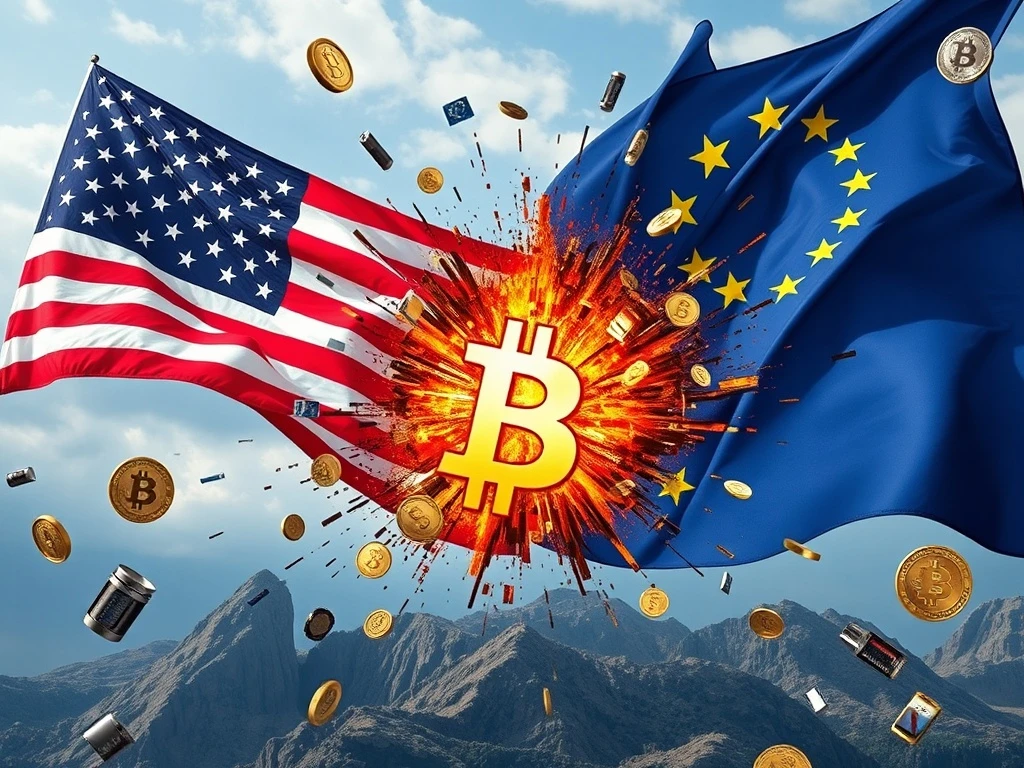In a groundbreaking move that signals escalating global competition, bipartisan US lawmakers recently concluded a high-stakes European tour to address the rapidly evolving landscape of digital asset policies. This strategic diplomatic mission underscores the critical importance of transatlantic cooperation in shaping the future of global finance.
Bipartisan Delegation Advances Digital Asset Policies
House Financial Services Committee Chairman French Hill (R-AR) and Representative Vicente Gonzalez (D-TX) led a crucial bipartisan delegation across Europe from August 20-28, 2025. Their mission focused specifically on strengthening collaborative digital asset policies with key European partners. The delegation engaged in intensive discussions with financial leaders in Italy, Switzerland, and Germany, emphasizing the urgent need for aligned regulatory frameworks.
Stablecoin Dominance Sparks European Response
The growing influence of US-issued stablecoins has triggered significant concern among European regulators. Consequently, the European Central Bank is exploring radical changes to its digital euro proposal. The ECB now considers implementing a public blockchain-powered CBDC to enhance competitiveness against private stablecoins. This strategic shift aims to maintain European sovereignty in digital finance while ensuring financial accessibility for all citizens.
National Security Meets Financial Innovation
Geopolitical tensions, particularly Russia’s ongoing aggression, have elevated the national security aspects of digital asset policies. Lawmakers stressed that robust transatlantic partnerships must address emerging financial risks while fostering innovation. The discussions highlighted how tokenization and new financial products could reshape traditional systems, making coordinated digital asset policies essential for economic stability.
Legislative Progress and Future Collaboration
The US delegation briefed European counterparts on recent legislative developments, including the groundbreaking GENIUS Act. This legislation has already catalyzed substantial innovation in stablecoin issuance. Both sides recognized the necessity of creating secure yet innovative financial systems that support economic growth and national security interests simultaneously.
Transatlantic Financial Framework Alignment
The meetings established foundational agreements for future cooperation on digital asset policies. Participants agreed that aligning regulatory approaches would benefit both regions significantly. This coordination becomes increasingly urgent as stablecoin markets expand rapidly and digital currencies gain prominence in global transactions. The collaborative efforts aim to shape a financial landscape that balances security with technological advancement.
FAQs: Digital Asset Policies Development
What was the main purpose of the US delegation’s European tour?
The primary goal involved strengthening transatlantic cooperation on digital asset policies and regulatory frameworks amid growing global competition.
How is Europe responding to US stablecoin dominance?
The European Central Bank is exploring a public blockchain-based digital euro to enhance competitiveness against private stablecoins.
What geopolitical factors influence these discussions?
Russia’s ongoing aggression and global tensions have heightened the national security aspects of digital finance regulation.
What legislative developments did US representatives share?
The delegation discussed the GENIUS Act and its impact on stablecoin innovation and digital asset policies development.
How might these discussions affect global financial systems?
The alignment of US and European digital asset policies could establish new international standards for digital currency regulation.
What are the next steps in this transatlantic cooperation?
Both parties will continue working toward comprehensive agreements that address emerging risks while fostering financial innovation.








